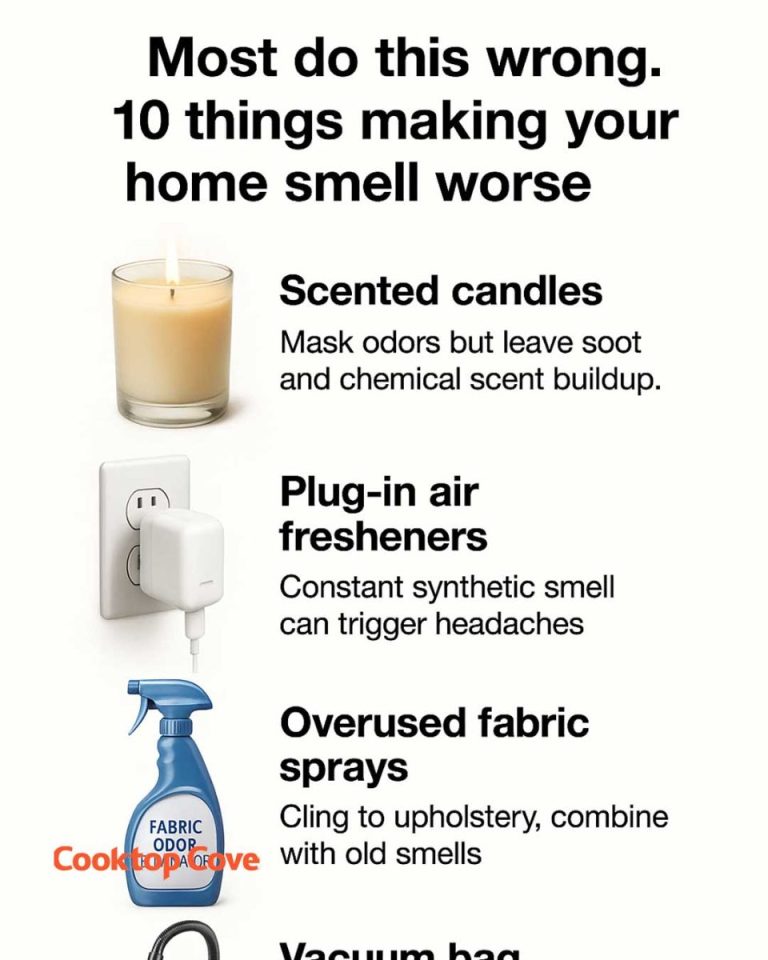ADVERTISEMENT
6. Forgetting to Clean the Garbage Disposal
The garbage disposal is a common source of kitchen odors, as food particles can accumulate and decompose over time. Neglecting to clean the disposal regularly can lead to a persistent, unpleasant smell that permeates your kitchen.
To keep your garbage disposal odor-free, clean it weekly by grinding a mixture of ice cubes and citrus peels. This helps dislodge any trapped particles and leaves a fresh scent. Additionally, running cold water through the disposal for a few seconds after each use can help prevent buildup.
7. Allowing Mold and Mildew to Thrive
Mold and mildew are not only unsightly but also significant contributors to musty odors in the home. These fungi thrive in damp, humid environments, such as bathrooms, basements, and laundry rooms. If left unchecked, they can spread quickly and create persistent smells.
To combat mold and mildew, ensure that these areas are well-ventilated and kept dry. Use a dehumidifier if necessary, and clean surfaces regularly with a solution of water and vinegar to prevent growth. Address any leaks or water damage promptly to prevent mold from taking hold.
8. Not Washing Pet Bedding Regularly
Pets are beloved members of many households, but their bedding can be a significant source of odors if not cleaned regularly. Pet hair, dander, and oils can accumulate in bedding, leading to a strong, unpleasant smell that can permeate your home.
To keep pet-related odors at bay, wash pet bedding at least once a week using a mild detergent. Additionally, vacuum the area around the bedding frequently to remove hair and dander. Regular grooming of your pets can also help reduce the amount of hair and oils that end up in their bedding.
9. Skipping the Refrigerator Clean-Out
The refrigerator is another common source of household odors, especially if expired or spoiled food is left inside. Over time, these items can emit strong smells that affect the entire kitchen.
To prevent this, make it a habit to clean out your refrigerator every few weeks. Discard any expired or questionable items, and wipe down shelves and drawers with a solution of water and baking soda to neutralize odors. Keeping an open box of baking soda in the refrigerator can also help absorb any lingering smells.
10. Overlooking Ventilation Needs
Proper ventilation is crucial for maintaining a fresh-smelling home, yet it is often overlooked. Without adequate airflow, odors can become trapped and intensify over time. This is especially true in areas like kitchens and bathrooms, where moisture and cooking smells are prevalent.
Ensure that your home is well-ventilated by opening windows regularly and using exhaust fans in kitchens and bathrooms. Consider installing air purifiers to help remove odors and improve indoor air quality. Regularly checking and cleaning air vents and filters can also help maintain proper airflow.
11. Using the Wrong Cleaning Products
Using the wrong cleaning products can inadvertently contribute to unpleasant odors in your home. Some cleaners contain harsh chemicals that leave behind strong, lingering smells, while others may not effectively eliminate odors at all.
To avoid this, choose cleaning products that are specifically designed to neutralize odors rather than mask them. Products with natural ingredients, such as vinegar or baking soda, can be effective alternatives to chemical-laden cleaners. Always follow the manufacturer’s instructions for use, and ensure proper ventilation when cleaning to prevent the buildup of fumes.
ADVERTISEMENT
